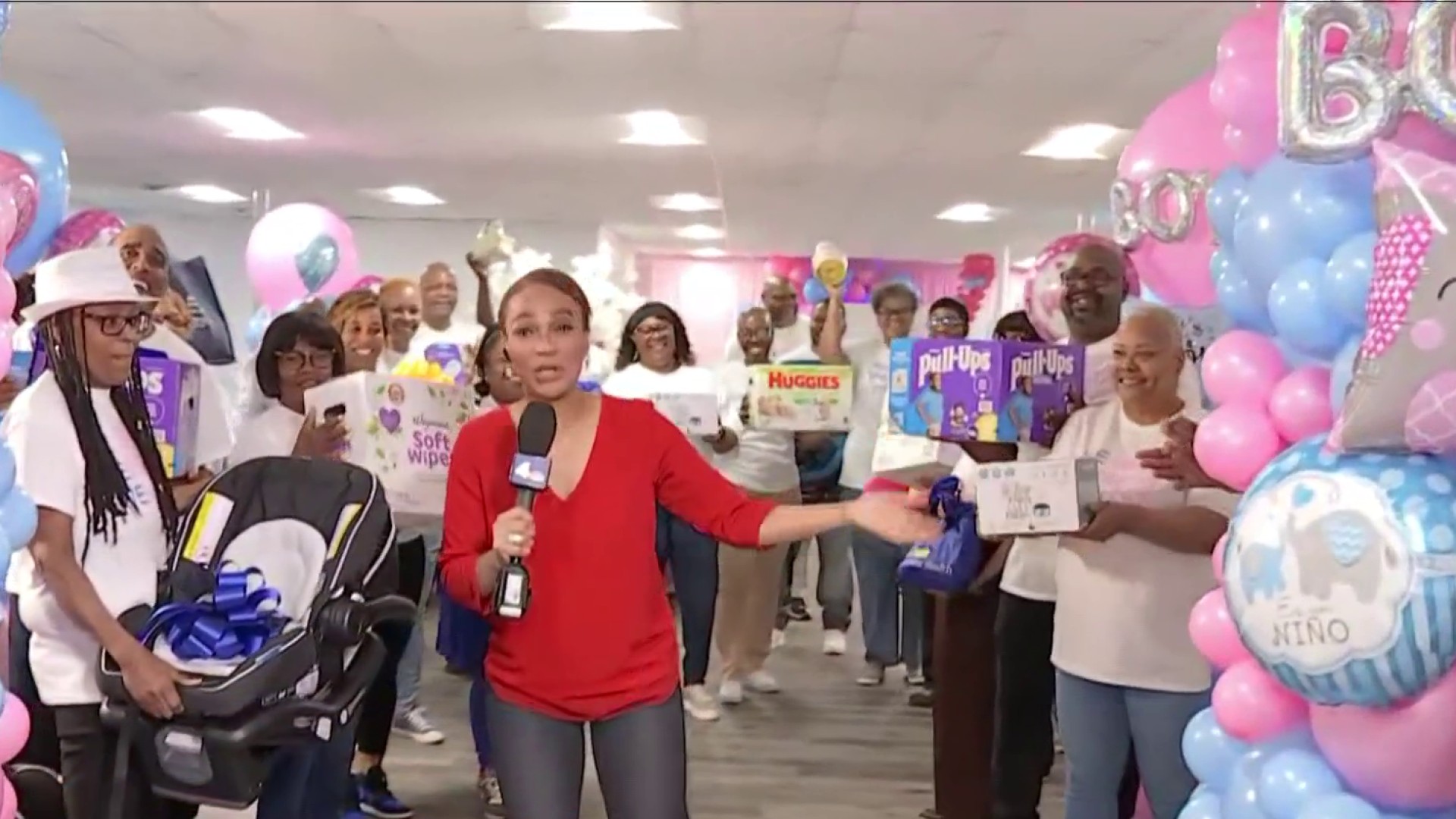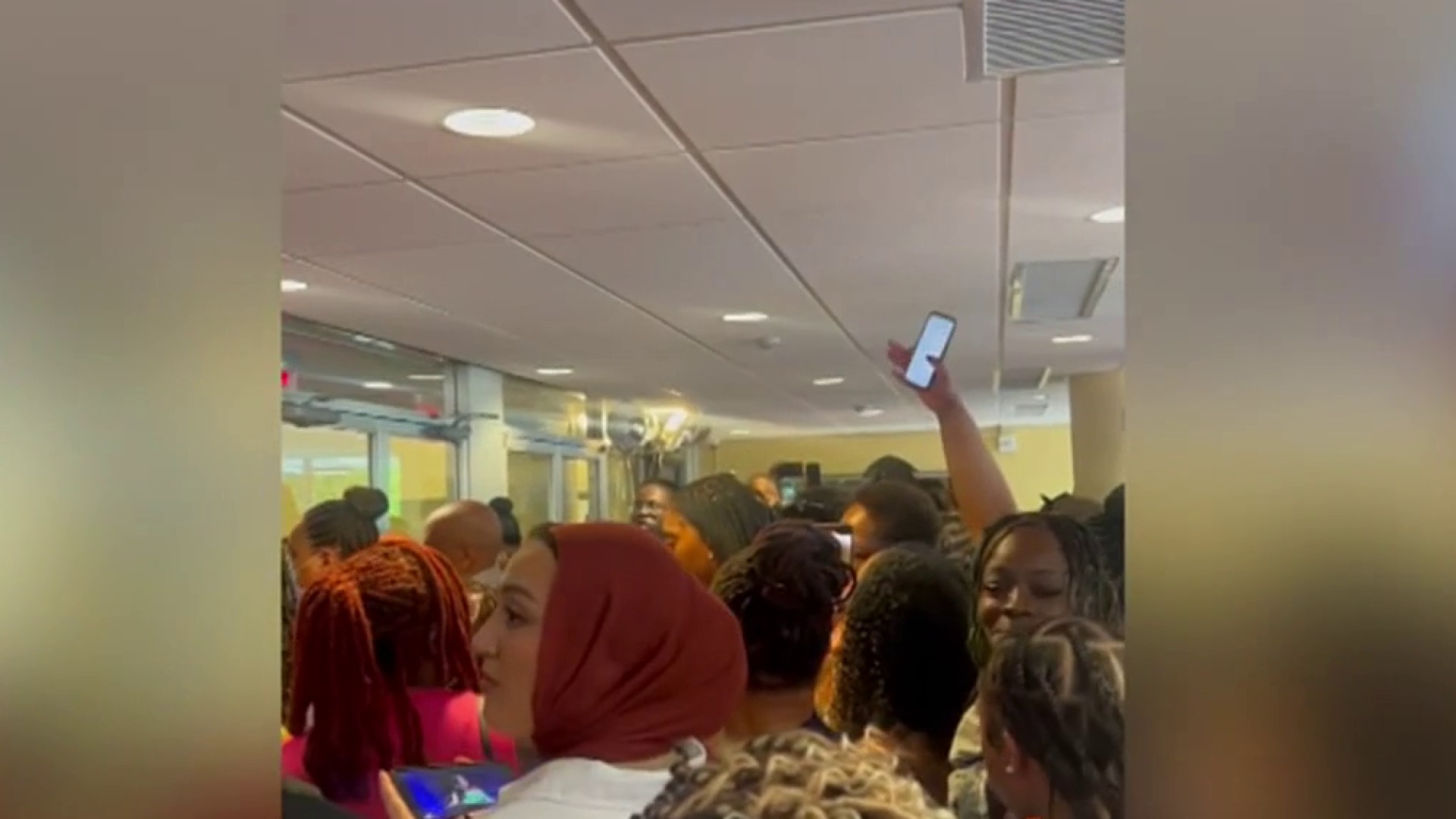The man who shot and almost killed a Virginia police officer in 2013 has been granted conditional release.
Circuit Court Judge James Clark ruled Kashif Bashir can move from the Northern Virginia Mental Health Institute into an apartment in Prince William County where he'll have frequent visits from a mental health team.
Alexandria Police Officer Peter Laboy was on motorcycle patrol in Old Town Feb. 27, 2013, when he tried to pull over Bashir for suspicious activity. Bashir shot Laboy in the head, then led police on a chase before he crashed and was arrested in the Mt. Vernon area.
But Bashir, who suffered from paranoid schizophrenia, was found not guilty by reason of insanity after trial evidence showed a voice in his head commanded him to shoot Laboy.
Because of his injuries, Laboy had to retire from the job he loved.
Supporters in police uniforms or “Laboy Strong” shirts were with him in court Thursday.
“Everybody says, ‘How you doing?’” he said. “I tell everybody, ‘I'm still here.’”
Local
Washington, D.C., Maryland and Virginia local news, events and information
Mental health professionals told Clark that Bashir has been symptom-free for at least three years and no longer hears the voices that once told him to rape a woman and shoot a police officer. Gradually, he has been given more privileges.
"He responded so well to treatment,” said Dr. Ashley Harron, the forensic evaluator at the Northern Virginia Mental Health Institute. “There would be no need to hospitalize him if there hadn't been this really horrific act.”
Alexandria Commonwealth’s Attorney Bryan Porter asked the judge to reject the request.
“He needs to be monitored on a daily basis by mental health professionals and not left to his own devices,” Porter said.
Porter reminded the judge of Bashir's words to police after he was arrested, suggesting his actions were not fueled entirely by schizophrenia.
"He told officers he decided to have some fun, rape a girl, get a gun and shoot a police officer,” Porter said.
He added, "Freedom is incompatible with public safety."
Bashir’s release comes with conditions. The mental health team must visit Bashir at least three times a week, including two times in his home. He can't travel 50 miles beyond his apartment. And he can’t own or drive a car.
“There are going to be a lot of eyes on you,” the judge told Bashir, warning him that if he doesn’t follow the plan he’ll lose his freedom.
He'll also spend at least 40 hours a week in programs set up through the Community Services Board.
"This is another small step,” defense attorney Emily Beckman said. “It's not a huge jump."
“I feel good about that, the more restrictions, that feels better,” Laboy said.
But he said he'll continue to worry about what could happen if Bashir's mental health declines again.
“I'm concerned about my family, me, other officers,” he said. “I can't really forget about that.”
For the past six months, Bashir has been allowed to leave the institute and stay in a Prince William County apartment for up to four nights a week without supervision. He wants to relocate to Prince William County to be near family.
Under questioning by Chief Deputy Commonwealth's Attorney Molly Sullivan, doctors admitted Bashir had broken the rules at least once during an earlier phase. He'd been given permission to go to a mosque for services but instead was seen leaving a movie theater with a female friend. Bashir initially lied about what had happened. He lost privileges for a time, but they were later restored.



